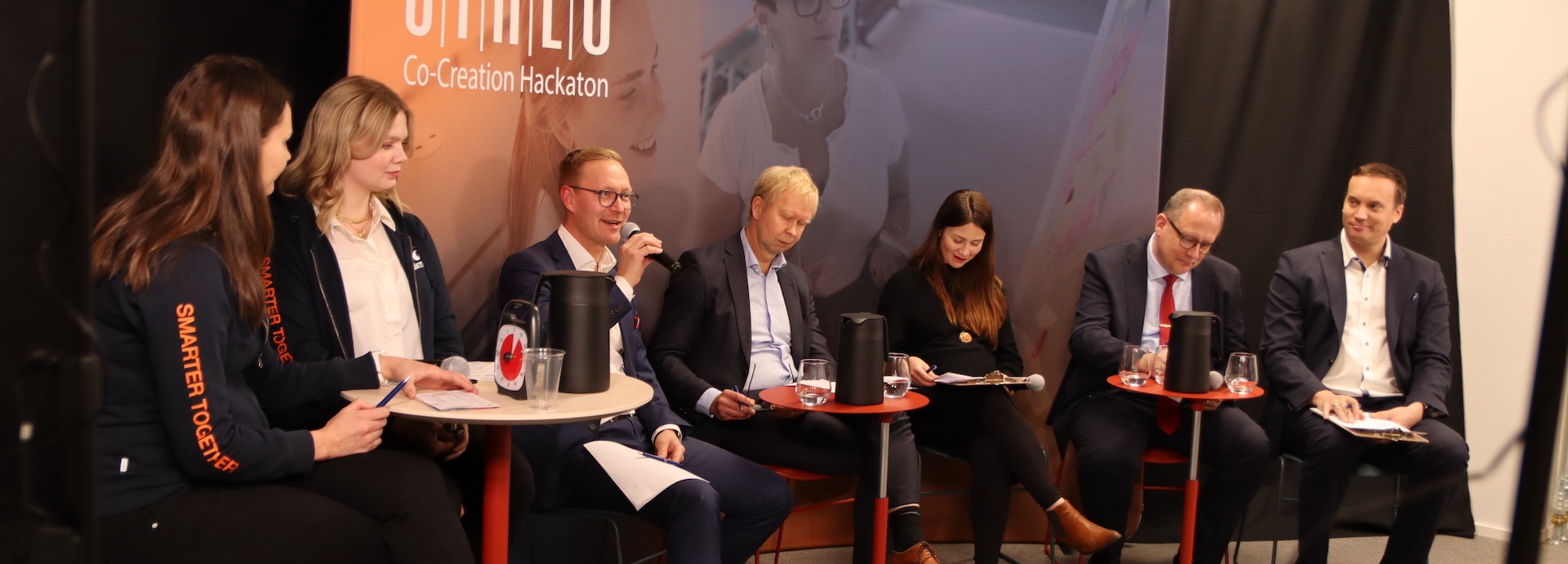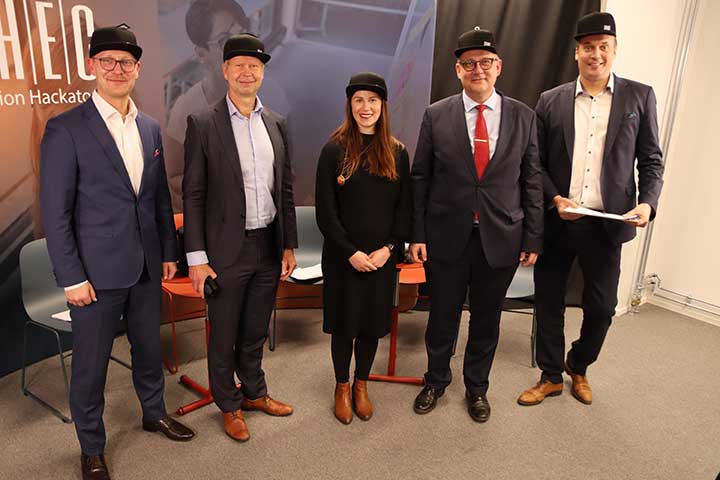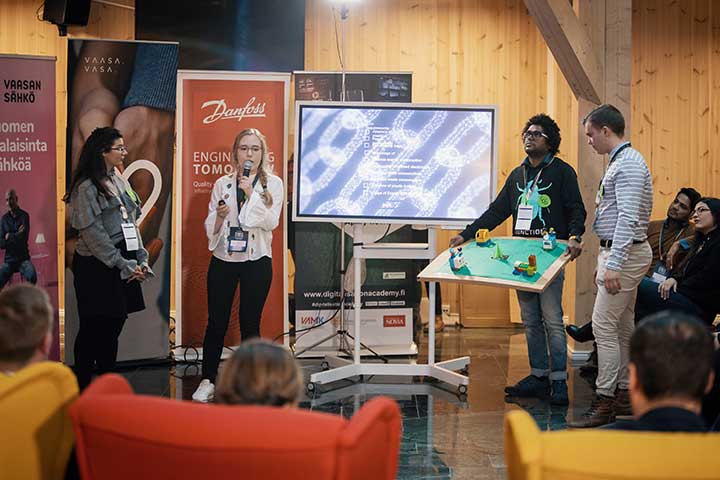

Collaboration is everything in an increasingly connected world. Wärtsilä has embraced the importance of co-creation in innovation in this year’s Smart Technology Hub Ecosystem Challenge (STHEC).
Wärtsilä’s Smart Technology Hub is an integrated centre of research, product development and production of smart solutions for the marine and engine sectors. Based at Vaskiluoto in the Finnish city of Vaasa, it will be an ecosystem of collaboration – both locally and globally – when it formally opens before summer 2022.
This ecosystem is made up of companies, start-ups, academia and other organisations working together on solutions to enable future sustainable societies at Wärtsilä’s Smart Partner Campus. Central to its working is the principle of co-creation, bringing together a variety of knowledge and expertise to rapidly build, test and validate different ideas.
It was with this spirit that the two-day student hackathon, which took place remotely on November 11-12, was arranged by Wärtsilä and its partners under the Energy Academy umbrella – a newly-founded network of universities, companies and organisations in the Vaasa region. Fifty-three students across 13 teams took part in the event – the second after its 2019 debut – with the prize being a summer job with a participating partner for everyone on the winning team.
“We need to attract talent to the region,” explains Kenneth Widell, senior project manager for Wärtsilä’s Smart Partner Campus. “By making sure that students, if and when they choose Vaasa as a place to study, get better access to the companies and jobs in the region. It’s a win-win for both parties."

Students pitched their ideas to the 'sharks': Hans-Alexander Öst from Vaasan Sähkö, Matti Vaattovaara from Hitachi Energy, Reeta Manninen from Danfoss, Tomas Häyry from the city of Vaasa and Hannu Mäntymaa from Wärtsilä.
Five real business challenges
This year’s STHEC consisted of five real business challenges, each delivered by an Energy Academy partner. The first, titled ‘Future hybrid setup as way-of-working’ and developed with engineering giant Danfoss, looked at how to ensure continuous development, encourage efficient ways of working and maintain a good team spirit in a hybrid workplace.
The second, ‘Multi-locality’, was created in conjunction with the City of Vaasa and examined how remote working impacts urban planning in a post-pandemic world – particularly future needs in terms of premises for studying, working and living in, as well as commuting.
Participants in the Wärtsilä-backed ‘Sustainable public transportation to the Smart Technology Hub’ challenge were asked to look at collaborative green transport solutions for the new facilities in Vaskiluoto, either by land to/from the airport or by sea to/from the university in Palosaari.
The fourth challenge – ‘Trade on the energy market – the undiscovered revenue opportunities for households’, run with electricity company Vaasan Sähkö, asked participants to see how households could optimise energy usage through smart and renewable technology and interactions with their energy provider to maximise the benefits of the grid scale renewable electricity revolution.
Finally, the Hitachi Energy-backed ‘The role of ecological and social values in the choice of technology solutions’ looked at whether, and how, ecological and social considerations are made in the operating environment and their potential impact.
Summer jobs at partner companies
The STHEC saw students work in small interdisciplinary teams with the support of an ecosystem of challenge providers, experts and mentors over two days, before presenting their solution in a three-minute closing session.
This year’s winning team looked at the role of ecological and social values in technology solutions. The winners will now be awarded a summer job best matching their skills and background at either Wärtsilä, Hitachi Energy, City of Vaasa or Danfoss – giving them valuable skills and contacts for their future careers.
One of the success stories from the 2019 cohort was Maria Piterskova, a fourth-year student at the Vaasa University of Applied Sciences and now an on-call trainee at Wärtsilä, where she completed her summer placement in 2020. She also took part in the organisation of the latest STHEC hackathon.
Her team’s winning solution in 2019 was an app called EcoSisu that was created to match empty premises with start-ups. They were praised for making full use of the ecosystem and consulting mentors and companies in the centre, using data to back up their solution and for the quality of their pitch, which was full of visuals and content.

Maria Piterskova (second from the left) was part of the winning team in the 2019 hackathon.
Co-creation key to innovation
The co-creation and agile working skills she learned through the challenge and at Wärtsilä are not ones she would gain in a traditional academic setting, she says. “At university, there are always some limitations. But here the sky’s the limit. That’s a very popular phrase just now but it’s the truth.”
Innovation is vital to creating sustainable solutions for the future and the STHEC provides Wärtsilä and its partners with an opportunity to get fresh ideas and meet young minds who are passionate about what they do. It also gives Wärtsilä a chance to see how its company values align with those of the next generation.
“We need to walk the talk here and [the STHEC] is a way of enabling co-creation, as well as how you see the power of co-creation,” explains Widell. “So you don’t look with your own spectacles, you broaden out your mind and bring in the strengths of others. Then one plus one equals three, enabling you to truly innovate.”
Did you like this? Subscribe to Insights updates!
Once every six weeks, you will get the top picks – the latest and the greatest pieces – from this Insights channel by email.

